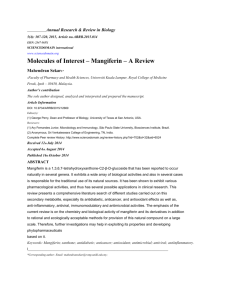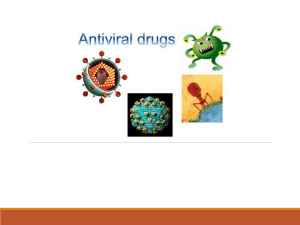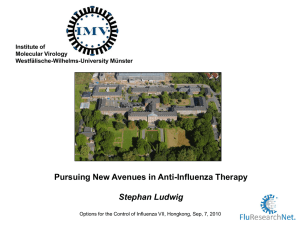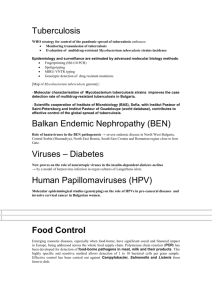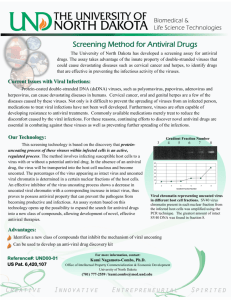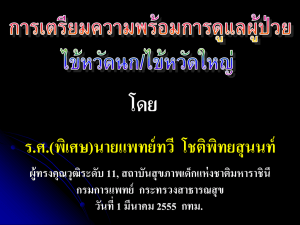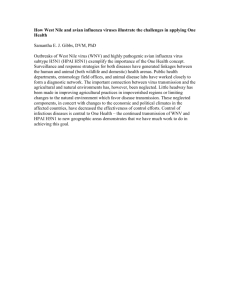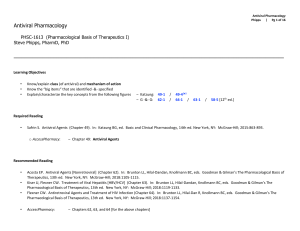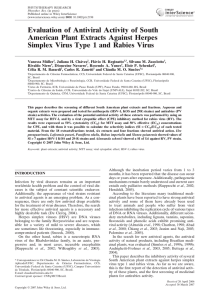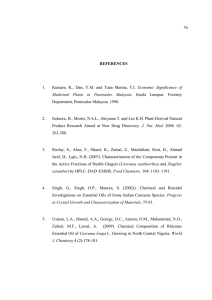PHYTOCHEMICAL STUDIES OF THE SOME INDONESIAN PLANTS ZINGIBERACEAE AS ANTIVIRAL Nurfina Aznam
advertisement
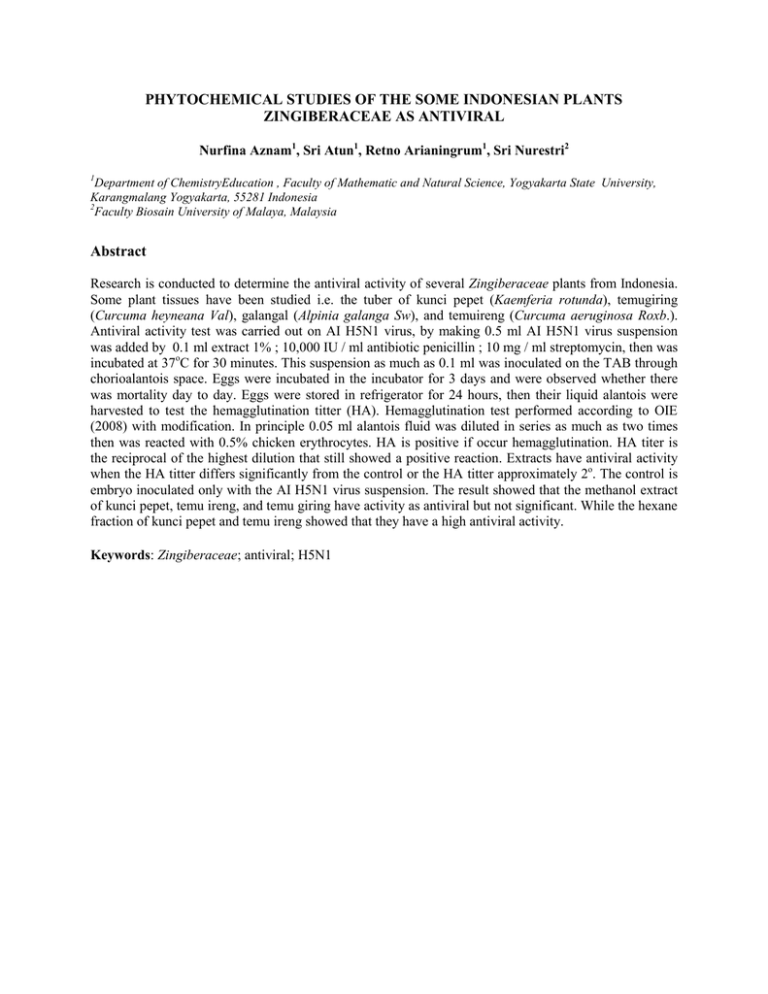
PHYTOCHEMICAL STUDIES OF THE SOME INDONESIAN PLANTS ZINGIBERACEAE AS ANTIVIRAL Nurfina Aznam1, Sri Atun1, Retno Arianingrum1, Sri Nurestri2 1 Department of ChemistryEducation , Faculty of Mathematic and Natural Science, Yogyakarta State University, Karangmalang Yogyakarta, 55281 Indonesia 2 Faculty Biosain University of Malaya, Malaysia Abstract Research is conducted to determine the antiviral activity of several Zingiberaceae plants from Indonesia. Some plant tissues have been studied i.e. the tuber of kunci pepet (Kaemferia rotunda), temugiring (Curcuma heyneana Val), galangal (Alpinia galanga Sw), and temuireng (Curcuma aeruginosa Roxb.). Antiviral activity test was carried out on AI H5N1 virus, by making 0.5 ml AI H5N1 virus suspension was added by 0.1 ml extract 1% ; 10,000 IU / ml antibiotic penicillin ; 10 mg / ml streptomycin, then was incubated at 37oC for 30 minutes. This suspension as much as 0.1 ml was inoculated on the TAB through chorioalantois space. Eggs were incubated in the incubator for 3 days and were observed whether there was mortality day to day. Eggs were stored in refrigerator for 24 hours, then their liquid alantois were harvested to test the hemagglutination titter (HA). Hemagglutination test performed according to OIE (2008) with modification. In principle 0.05 ml alantois fluid was diluted in series as much as two times then was reacted with 0.5% chicken erythrocytes. HA is positive if occur hemagglutination. HA titer is the reciprocal of the highest dilution that still showed a positive reaction. Extracts have antiviral activity when the HA titter differs significantly from the control or the HA titter approximately 2o. The control is embryo inoculated only with the AI H5N1 virus suspension. The result showed that the methanol extract of kunci pepet, temu ireng, and temu giring have activity as antiviral but not significant. While the hexane fraction of kunci pepet and temu ireng showed that they have a high antiviral activity. Keywords: Zingiberaceae; antiviral; H5N1


